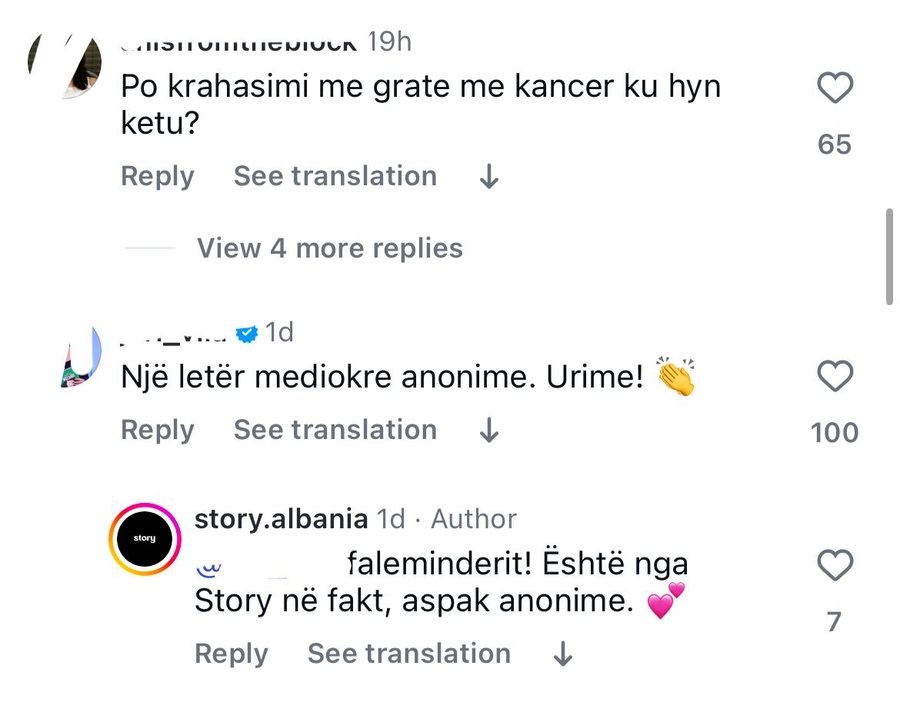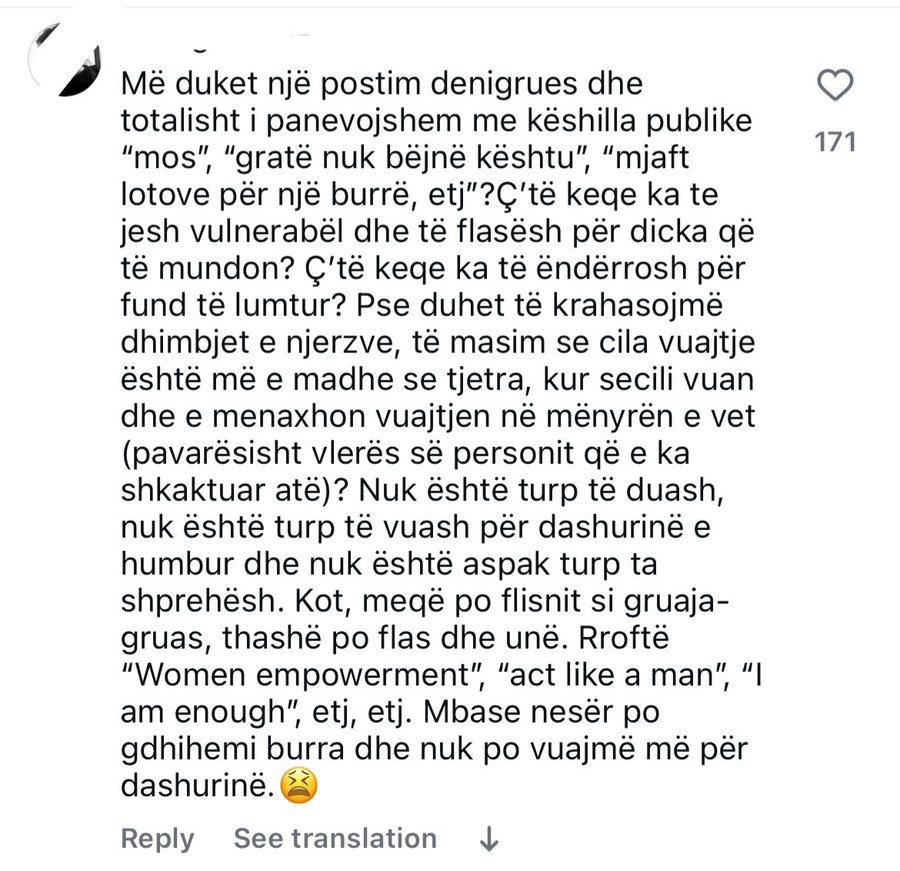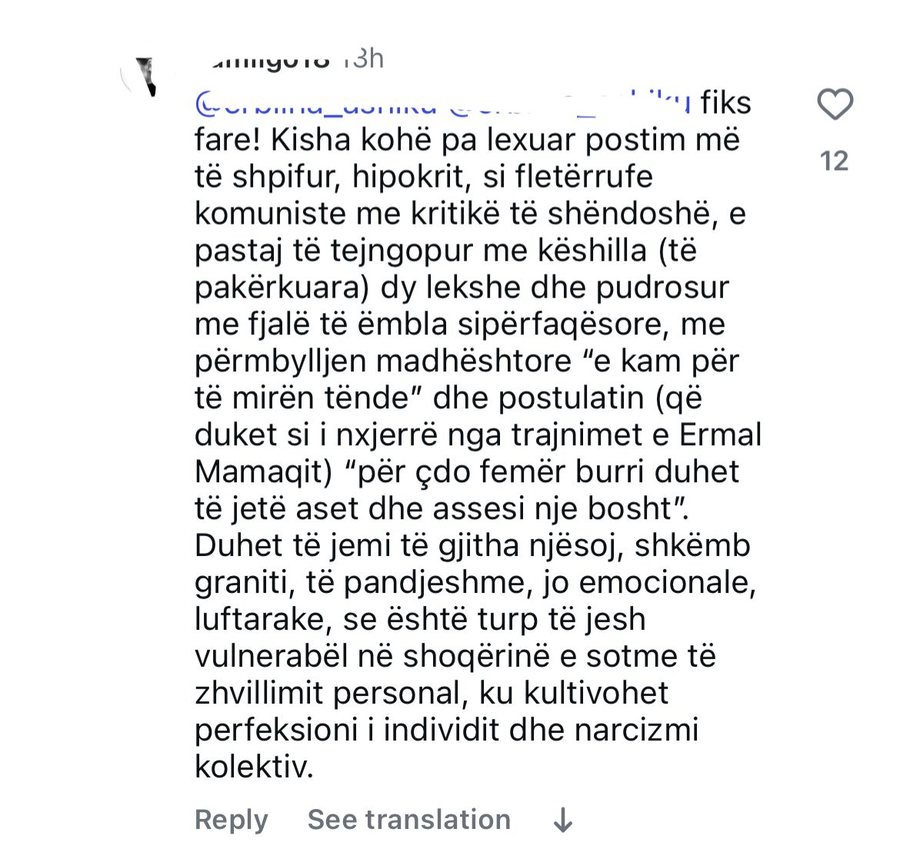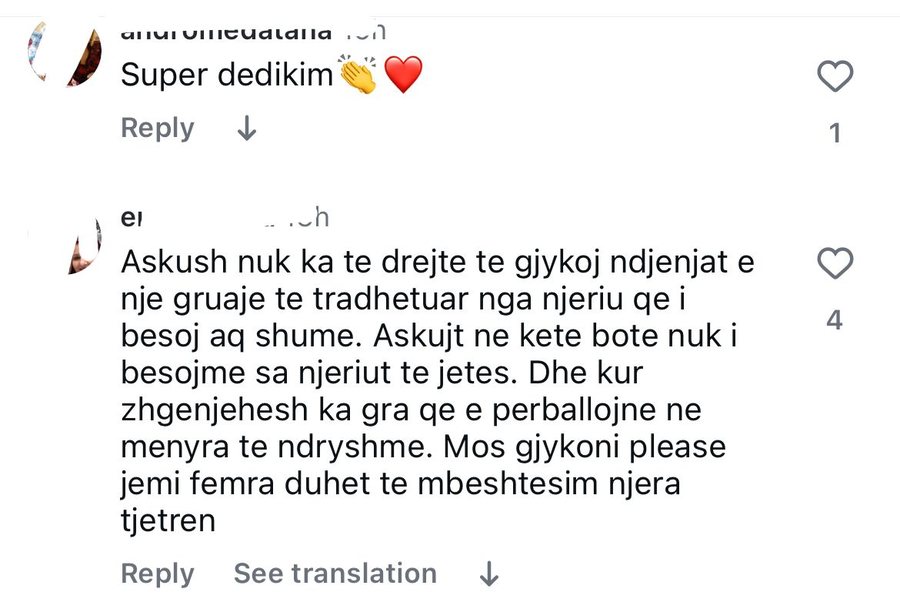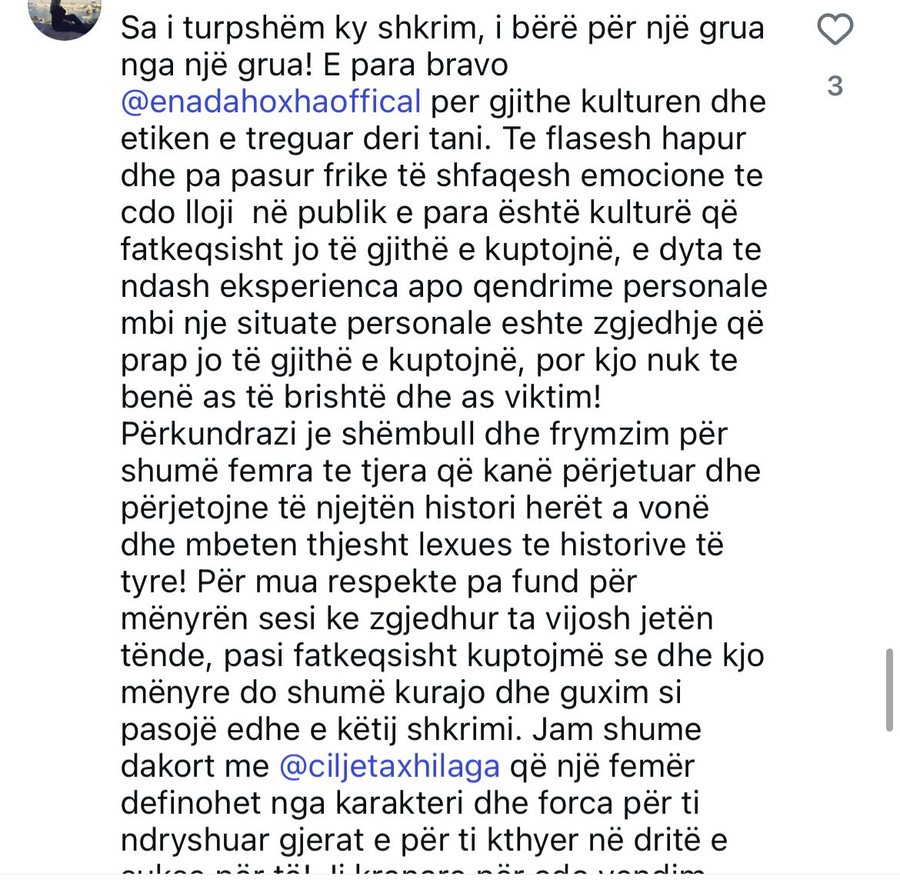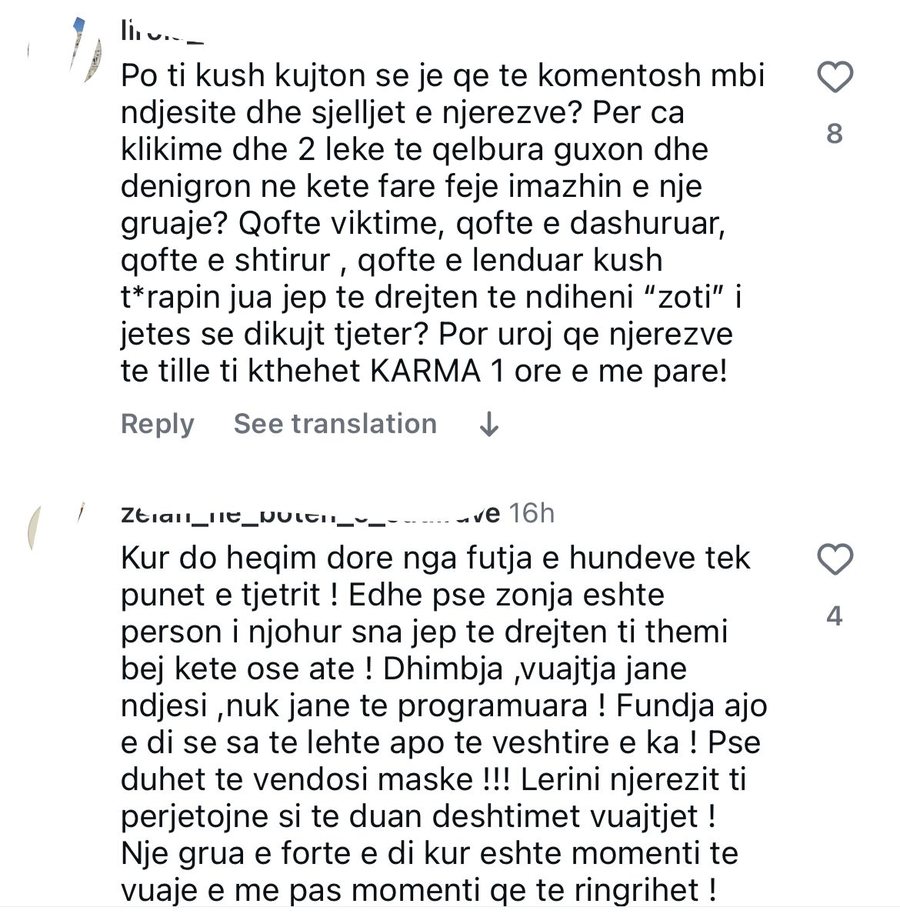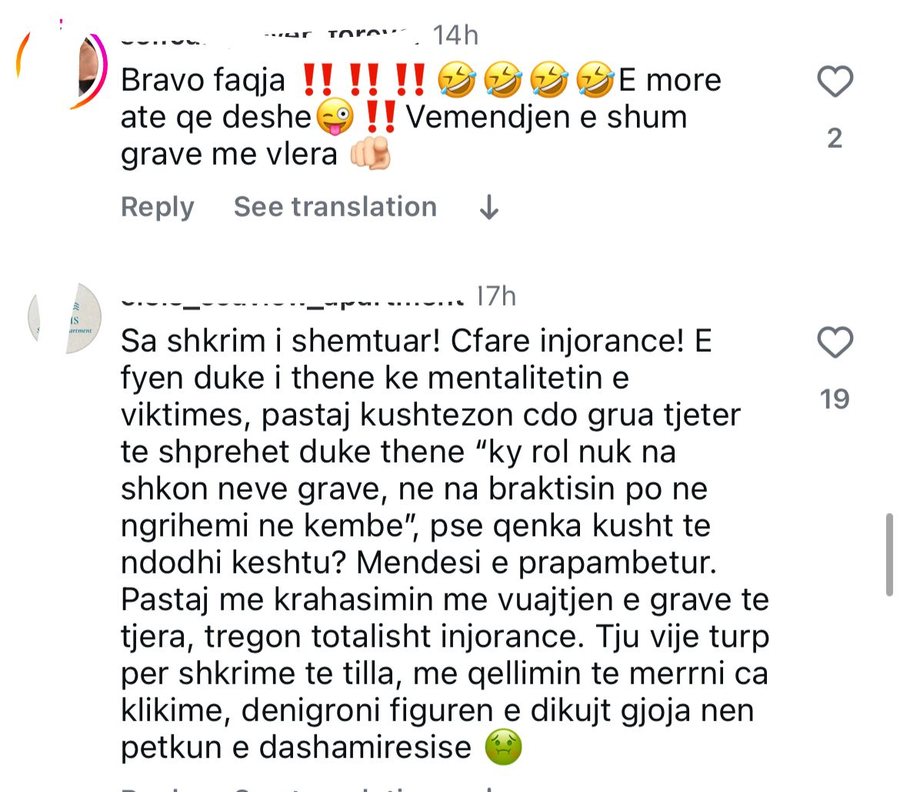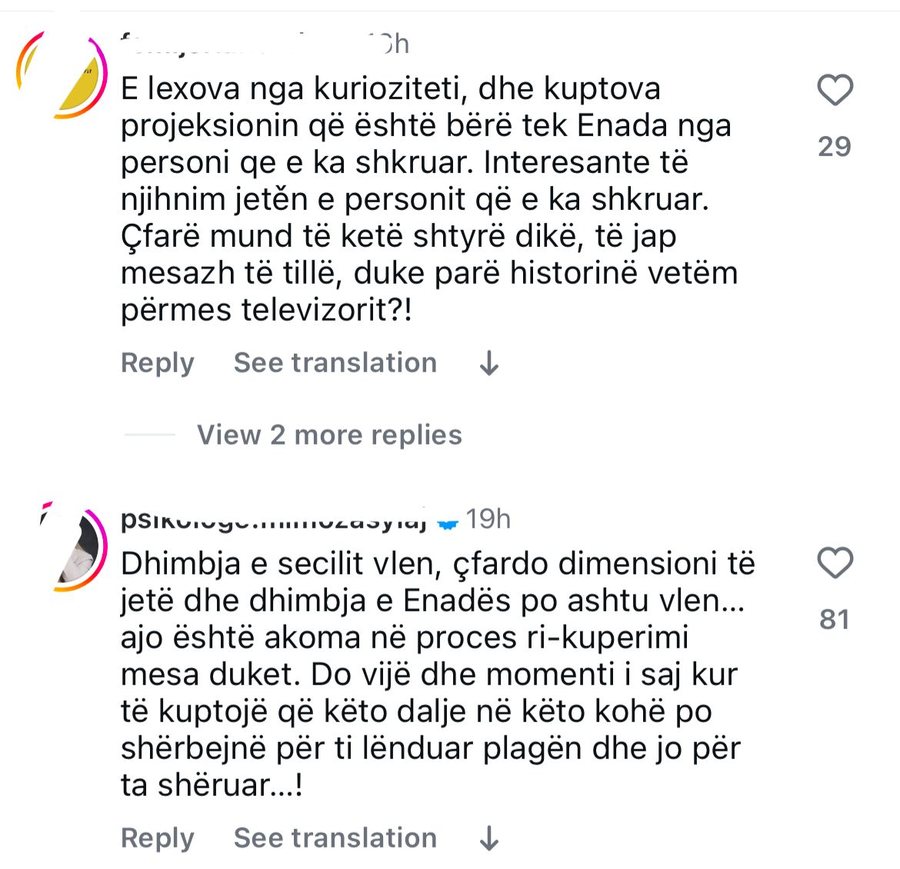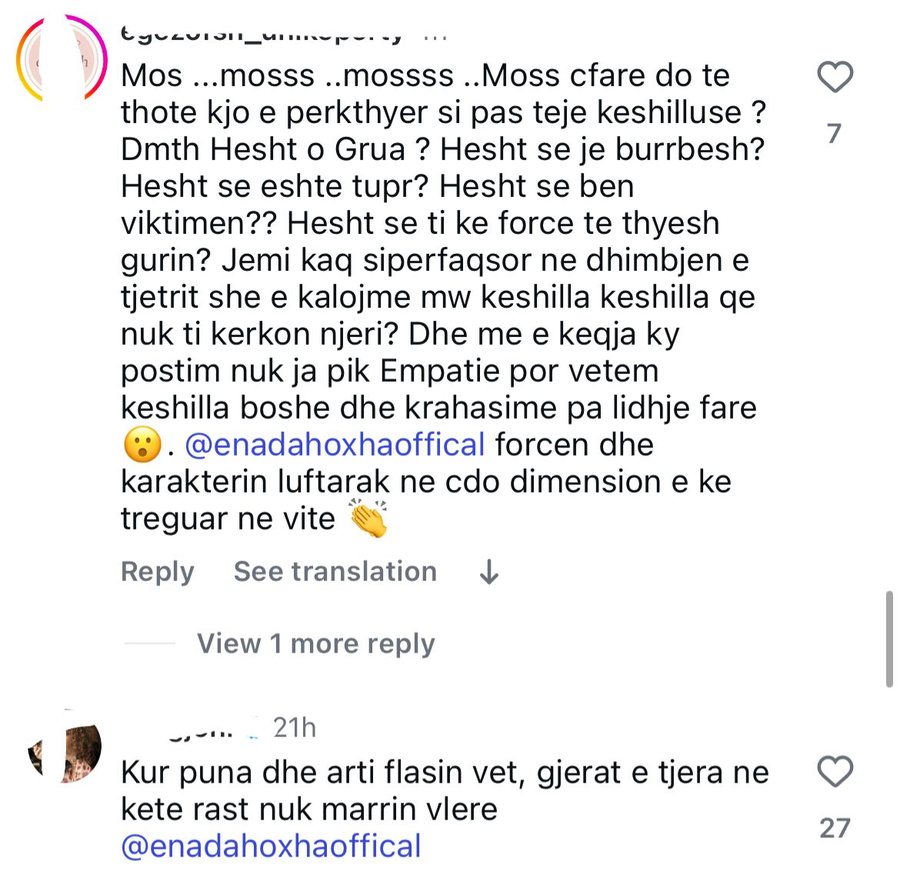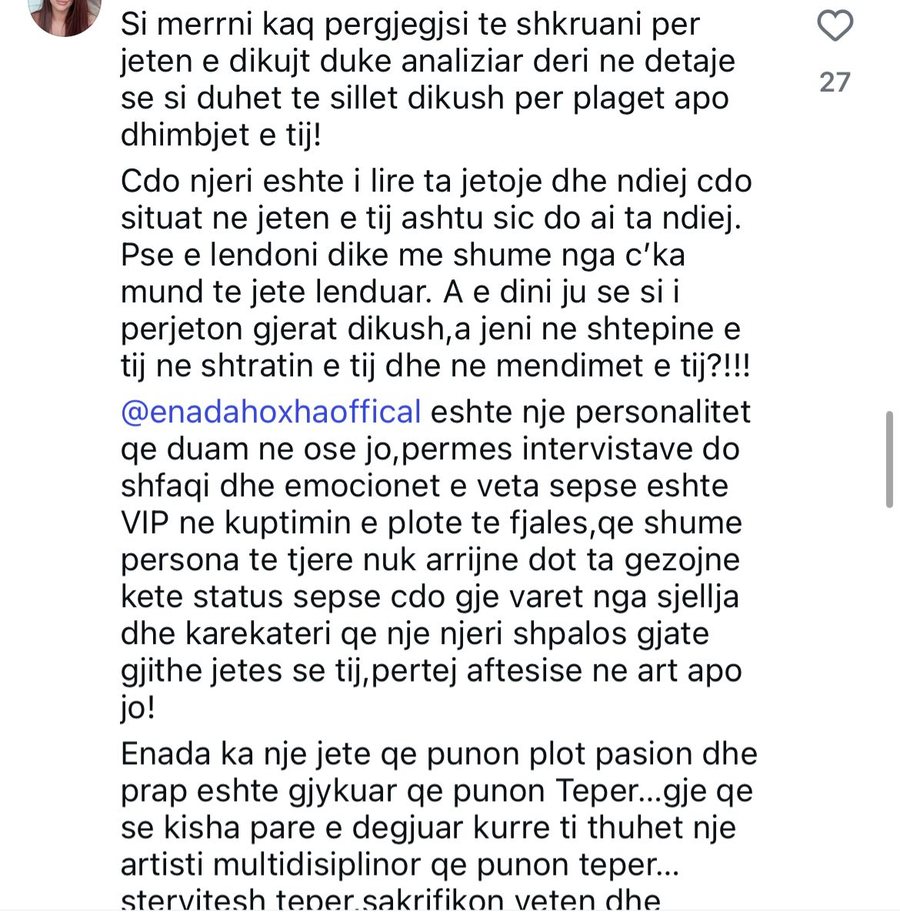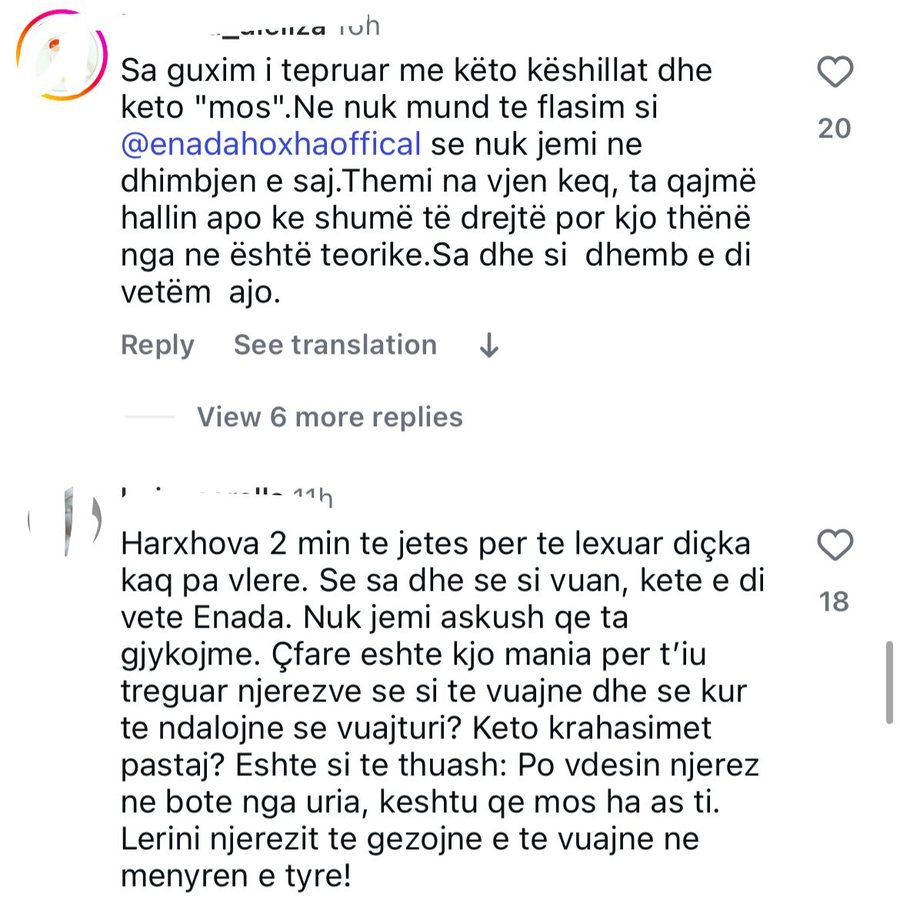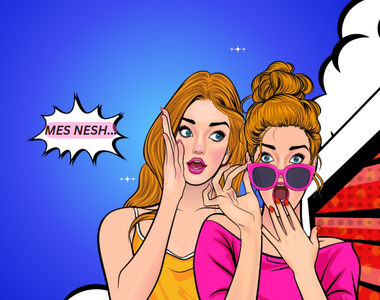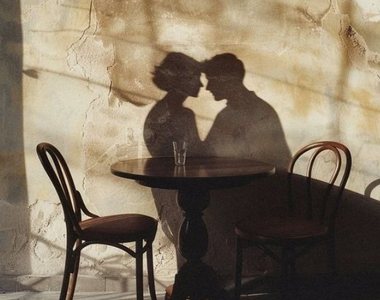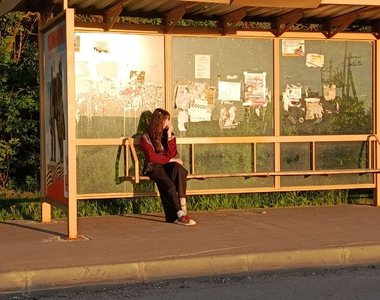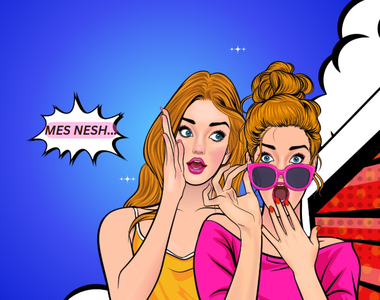
In recent days, a letter published by Story.al, an online media outlet, addressed to Enada Hoxha circulated, which claimed to offer a motivational approach to a woman going through a difficult period. On the surface, the letter was dressed in kind tones and heartfelt sentences. However, the more I read it, the more clearly its true essence emerged: not support, but judgment; not understanding, but moralizing; not solidarity, but a silent manual on “how women should suffer.”
From the very first lines, the author addresses Enada with the words: “you don’t stop being victimized for him, please, enough! ” and further: “enough tears for a man” . Her pain is treated as excessive, tiring, insufficient to deserve so much attention. This approach restores old narratives that expressing emotions is weakness, that tears are shameful, that a woman should know how to “hold herself”.
Let's get to the point: a woman tells another woman that her pain is excessive. That she should hold it in. That she should hold it in, but in moderation. That she should control it. “From the moment you burst into tears and your voice trembles like a wren in winter, you have made up your mind to embrace the role of a victim,” the letter reads. This type of communication, despite appearing like friendly advice, carries a controlling language. A burden is placed on Enada to be “strong,” to not show herself as a “victim,” to not be too emotional, too sad, too vulnerable. In other words, to not be fully human.
The letter goes even further and tries to compare Enada's pain with other women's pain, listing a list of tragic situations: from women facing cancer, to those who have lost children, to poor women who "don't even have time to get depressed." According to this logic, no one has the right to talk about their pain, because there is always someone "in more pain." But pain is not a competition. It is not measured, it is not weighed, and it should never be used to silence someone who is suffering.
Ironically, while the letter purports to speak to Enada “as a woman,” it reproduces the rules that society has imposed on women for centuries: to be silent, to be patient, not to overreact with emotions, not to appear unstable, not to burden others with their suffering. Phrases like “he made you look like a controlling lunatic” and the constant subtext of victimization hark back to the times when any expression of pain was labeled hysteria.
I myself, meanwhile, am dealing with a personal loss – a loss that comes from sudden death, the kind of loss that shakes your foundations and forces you to rebuild yourself from the ashes. And although every cell of my being knows how terrible this is, it never occurs to me to compare my pain to Enada’s. Because my loss is mine and her loss is hers. Both are valid, both are true, and there is no reason to weigh them against each other. I even dare to admit that there are moments when I see loss in a more philosophical light, and the words of Ralph Waldo Emerson seem truly true to me: “Of all the ways to lose a person, death is the kindest” – among all the ways to lose someone, death is the one that hits you the softest.
Therefore, these calls that ask people to “be strong,” “not to be victimized,” “not to overdo it with tears,” are in fact old pressures adorned with new words. Strength is not about getting up immediately, wiping away your tears, and pretending like nothing happened. Strength is about admitting that you have fallen. Strength is about letting your eyes water when it hurts, saying “I’m not feeling well today” without hiding, not wearing a mask for fear of annoying someone. Strength is about not carrying the weight of other people’s expectations on your shoulders. Above all, strength is about suffering pain in your own way, not in the way others expect of you.
If we want to support women and men - Enada, me, you, everyone - we must start by letting go of absurd regulations about how we should feel. Pain has no single form, no expiration date, no manual. Vulnerability is not weakness, but the purest proof that we are human.
True solidarity is not built by publicly rebuking, but by listening without prejudice, understanding without pressure, respecting the wounds we cannot see. Enada's pain is hers and she deserves to experience it without pretense, without limitation, without judgment.
And we, if we want to be truly close to each other, must start with the only thing that has always worked: listening. After all, no one has ever been healed by an unnecessary and unsolicited lecture; but many have been healed by the presence of someone who simply knew how to listen.
– Written by Sindi Salaj, editor-in-chief of Anabel, who does not measure people's strength by the number of times they have not cried.
